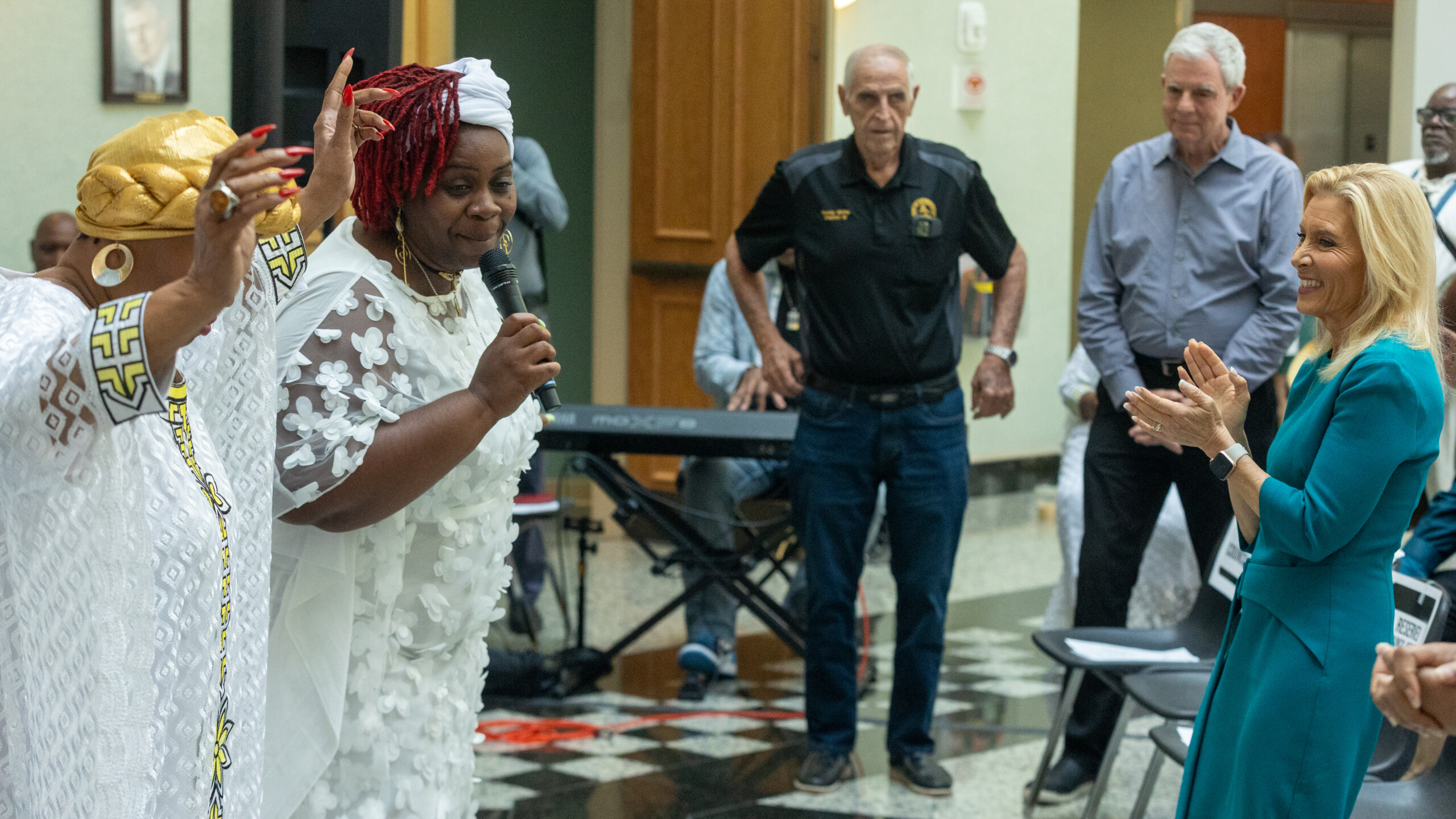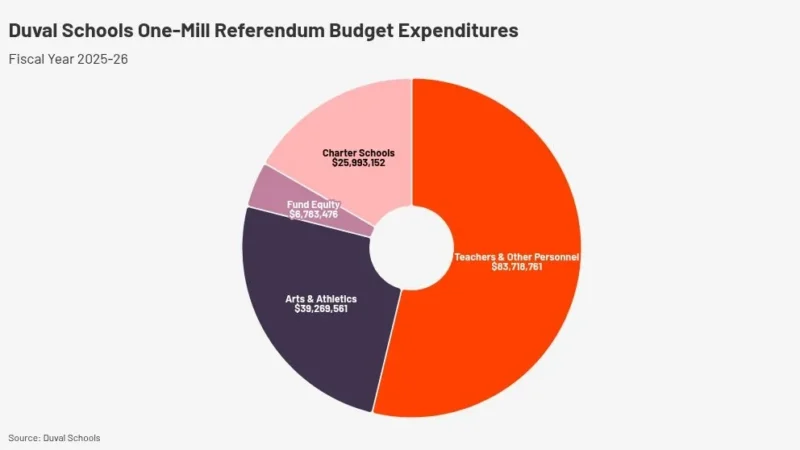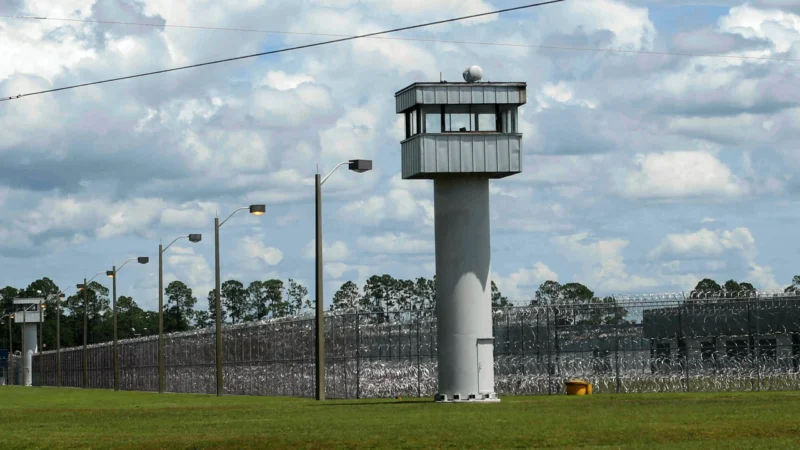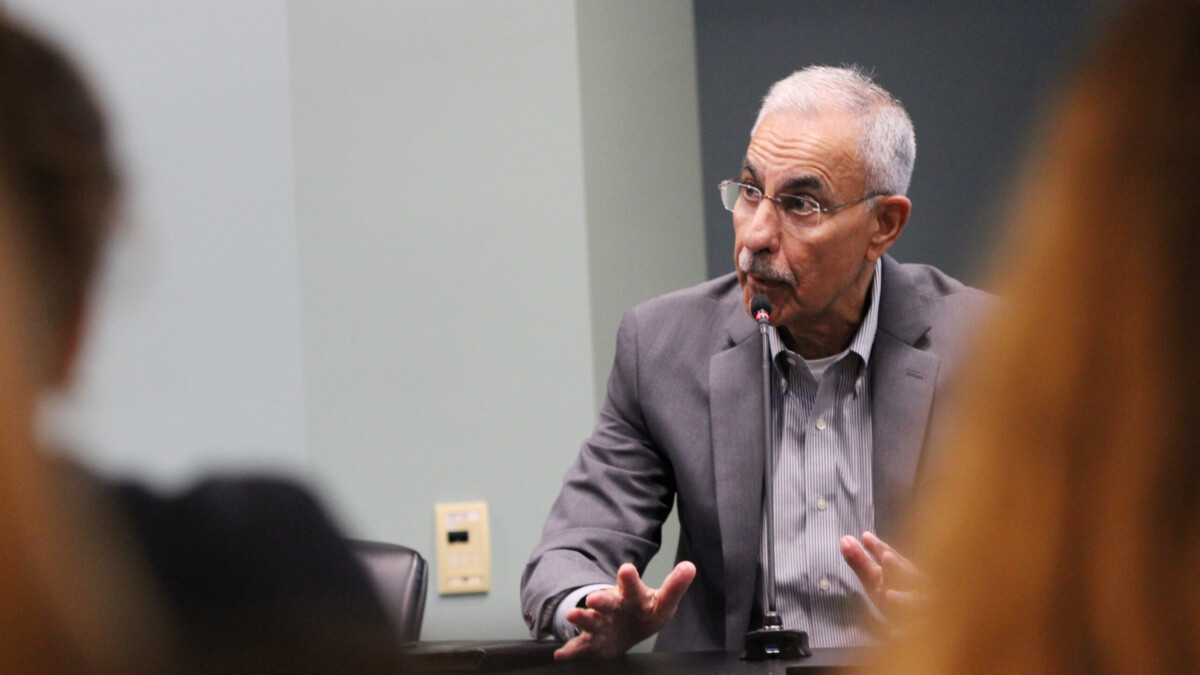On Tuesday, Jacksonville city officials commemorated the 160th anniversary of Emancipation Day in Florida.
They recalled that Black liberation in the U.S. came covered in the blood of the Civil War. They also championed freedom, resilience and hope for the days and decades ahead.
Eartha M.M. White helped organize Jacksonville’s first Emancipation Day commemoration in 1913. Council Member Ju’Coby Pittman, who doubles as the CEO of the Clara White Mission, revived the celebration in 2021.
“As a council woman for the City Council of Jacksonville and a proud servant of this community, I’m inspired by how far we’ve come but reminded how far we must go to ensure our heritage is not forgotten,” Pittman said. “Locally, statewide and nationally, the Emancipation was not the end, it was the beginning of a long, ongoing journey.”
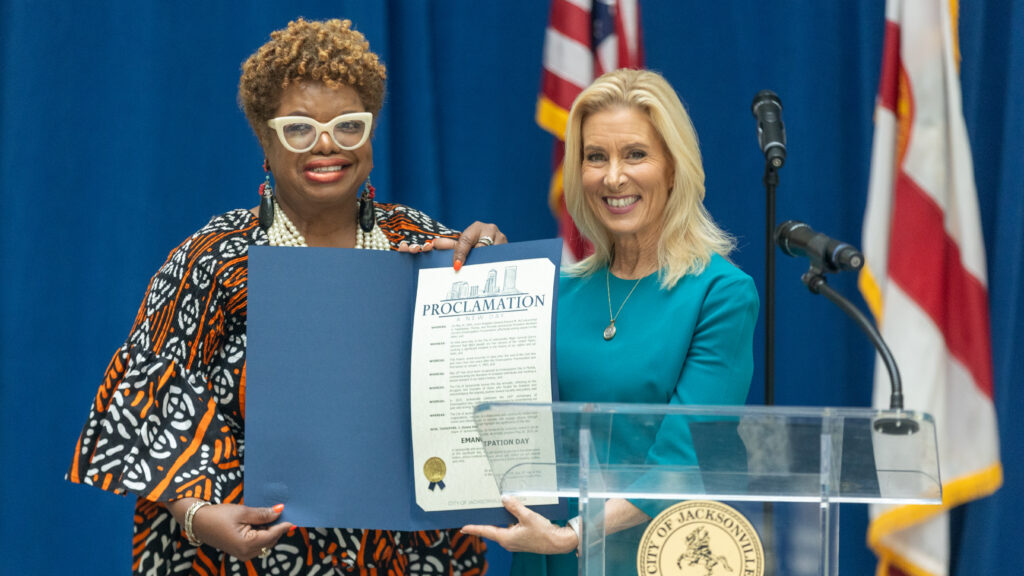
What is Emancipation Day?
When President Abraham Lincoln issued the Emancipation Proclamation on Jan. 1, 1863, he declared the government of the U.S. – including the military – would recognize and maintain the freedom of people who were enslaved in Florida and nine other states that had seceded from the country.
Local historian Adonica Toler noted during Tuesday’s celebration at City Hall that the proclamation was read in Jacksonville, St. Augustine, Pensacola and Key West because the Union controlled those cities in January 1863.
It took more than two years for news of that freedom to reach other portions of the peninsula.
By the time it did, Florida’s governor had taken his own life after realizing the war was lost, Robert E. Lee had surrendered at Appomattox to end most of the fighting, and Lincoln had been assassinated.
In May 1865, Union Gen. Edward M. McCook arrived in Tallahassee to accept the surrender of Confederate forces in Florida. On May 20, he read the Emancipation Proclamation in Tallahassee and declared all enslaved persons in Florida free.
It took nearly a month before word reached Galveston, Texas. On June 19, 1865, Texas became the last state to honor the Emancipation Proclamation. The federal Juneteenth holiday celebrates the end of enslavement in Texas.
McCook’s reading ushered in the Reconstruction Era in Florida. Over the next five years, Jacksonville grew as newly freed people flocked here for job opportunities. That period also saw a trio of federal constitutional amendments that abolished slavery (13th), provided citizenship protections (14th) and established the right to vote (15th).
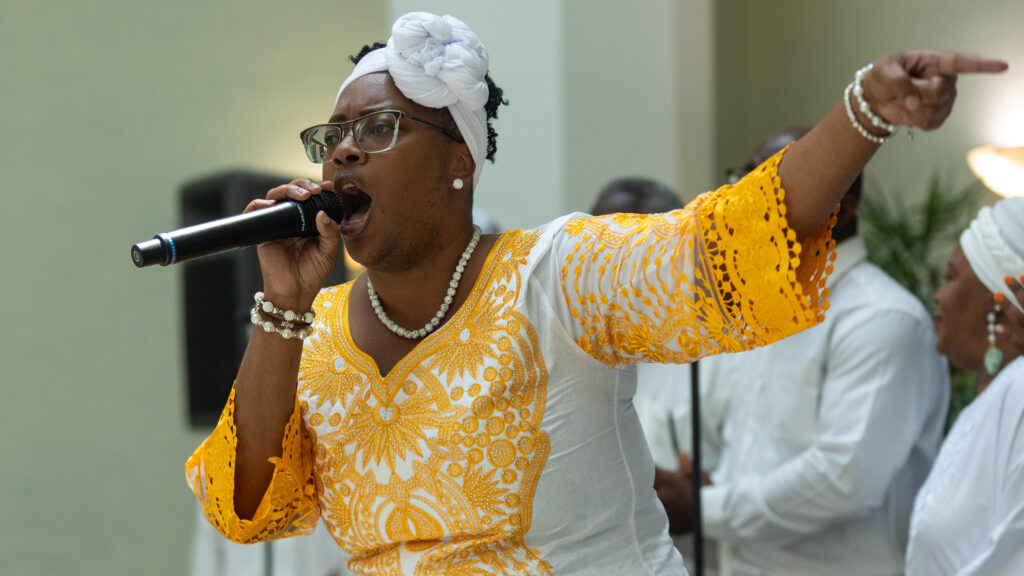
From emancipation to citizenship
When the 14th Amendment was ratified in July 1868, it ensured the citizenship for formerly enslaved people, who had been denied enfranchisement when the Constitution was ratified in 1788: “All persons born or naturalized in the United States, and subject to the jurisdiction thereof, are citizens of the United States and of the State wherein they reside.”
The Supreme Court ruled unanimously almost 130 years ago that the 14th Amendment ensured all people born on U.S. soil are citizens. Jacksonville’s Emancipation Day celebration on Tuesday came less than a week after the U.S. Supreme Court heard an argument from Trump administration about why it should overturn birthright citizenship for the children of undocumented immigrants.
U.S. Solicitor General John Sauer argued before the court on May 15 that the citizenship clause in the 14th Amendment is “related to the children of former slaves, not to illegal aliens who weren’t even present as a discrete class at that time.”
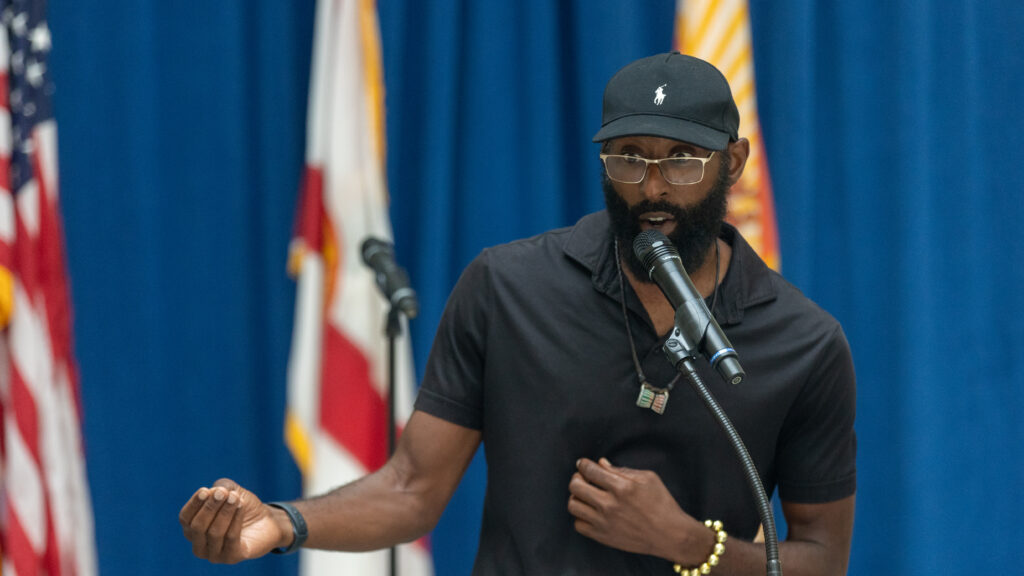
Jacksonville poet Mal Jones, who performed on Tuesday, said lyricizing his study material in high school is what helped him graduate from what was then called Robert E. Lee High School.
During his spoken word performance, he rapped, “We’re still changing schools’ names here, quite generally. Andrew Jackson, who sold slaves during his presidency. Caused the youth to promote the change we all want to see.”
The hour-long celebration was attended by a bipartisan group of local officials. City Council President Randy White sat beside Mayor Donna Deegan, as well as council members Michael Boylan and Ron Salem.
“For every resident of Jacksonville, this day reminds us that history lives not just in the past, but in the choices that we make right now, in the choices we make every day. In how we build inclusive communities, how we teach our children, how we treat one another,” Deegan said. “Florida Emancipation Day is about truth. It’s about healing and it is about hope. So today, let us remember that freedom, it’s not just an ideal. It is a promise – a promise we must continue to fight for together.”
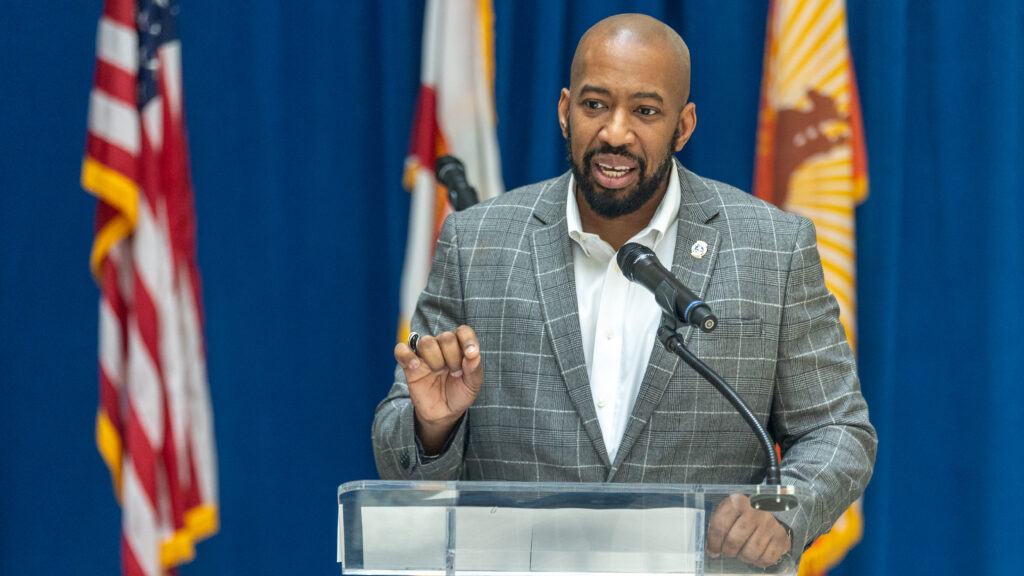
Council member Rahman Johnson served as the master of ceremonies. He said Emancipation Day celebrations in the state are necessary and show community wisdom growing through the decades.
Johnson said Jacksonville is “honored to stand with unwavering commitment and commemoration that has brought us to this moment of toil, labor and fight to declare to those who came before us: We see you. We hear you. And, because of you, we can stand so without reservation.”



